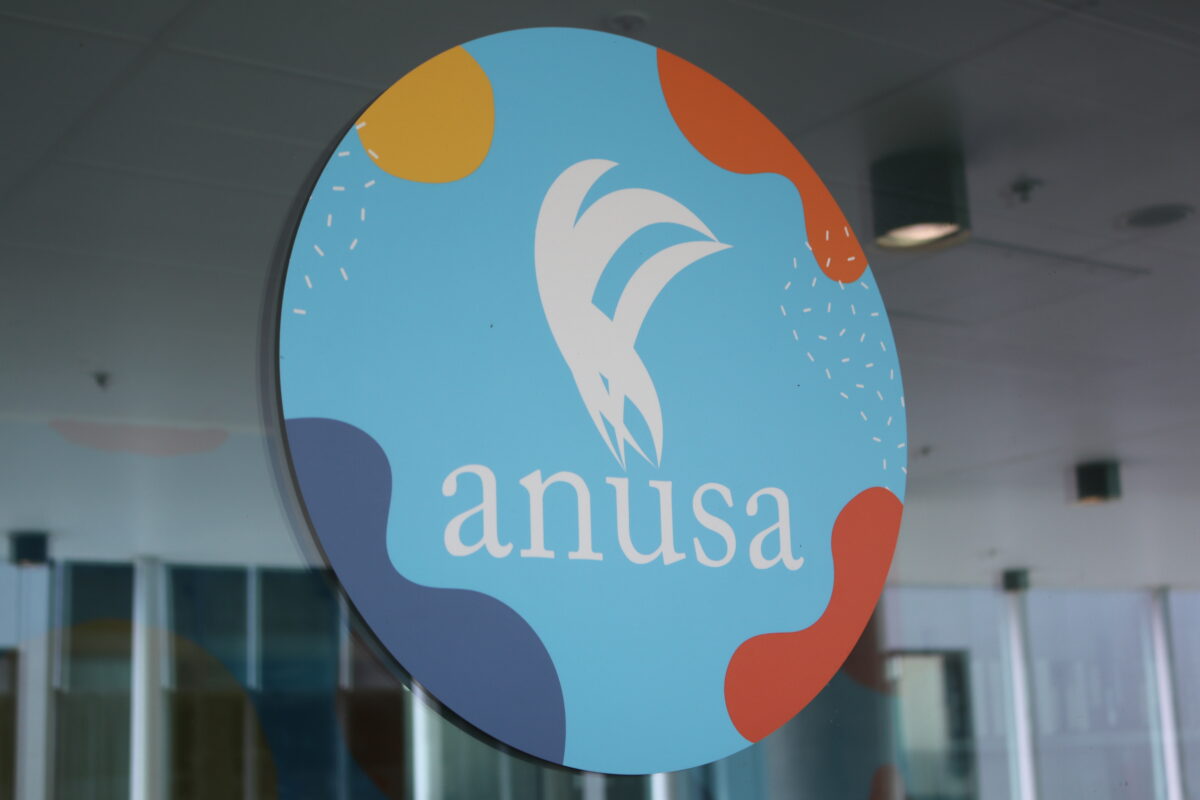Following ANUSA’s fourth Student Representative Council meeting at the end of semester one, Treasurer Will Burfoot (he/him) presented an overview of ANUSA’s finances between the 1st of December 2023 and 13th May 2024. This included the figures for the same period in 2022-2023.
While this format aims to compare the current figures with last year’s funding, many expenditures in the report are yet to be fully loaded, which means in many areas the figures are not an accurate reflection of spending. Students must wait until next semester to attain a full understanding of certain expenditures.
This year during the Annual General Meeting (AGM), Burfoot also presented the budget variances for a number of expenditures.
After much number-crunching and sifting through a range of ANUSA reports and documents, Woroni is able to provide a comprehensive overview of the Union’s finances and funding priorities.
ANUSA is currently allocated 55 percent of the total SSAF pool. The Union received around $2,000,000 in SSAF funding for 2024, with an additional $1,000,000 to aid the expansion to include post-graduate and HDR students, following PARSA’s disestablishment last year.
Key areas of expenditure included clubs, O-week, BKSS, ANUSA staff salaries and wages among others
Clubs funding sat at $34,560 in the first semester, which is in stark contrast to $65,656 last year, marking a 47 percent reduction. However, Burfoot explained at the AGM that “there was a backlog of club grants which is now being cleared.” This means the figures for club expenditure is likely to be higher in the second half of the year.
ANUSA spent over $86,000 on O-Week in 2023, while it spent a mere $56,000 in 2024, representing a 35 percent fall in expenditure. However, the cuts in O-week funding is likely curbed by increased funding for ANUSA autonomous departments, who run a number of events during O-week.
The total allocation for BKSS food and consumables sits at around $30,000. This marks an increase in allocation, from last year’s expenditure of $26,000. While Burfoot told Woroni that, “BKSS funding has increased,” this increase is likely to have a minimal effect as actual expenditure on food and consumables have remained relatively alike so far.
In addition, as of the first semester, spending on the Education Welfare Action Group (EWAG) and the autonomous Departments have increased beyond the respective budgets.
EWAG spent around $5000, which is $1000 higher than its allocated $4000 budget. Departments spend around $70,000 during the first semester from its allocated $50,000 budget. At the 2024 AGM, Burfoot explained that these areas “have higher one-off expenditure at the beginning of the year…which is why they can be allocated above up until [semester one] in the year but this will even out later on.”
For the whole of 2024, $2,329,906 is budgeted for staff salaries. In 2023, the budget was $2,082,297. This represents a nearly 12 percent increase – higher than inflation, which peaked at around seven percent between early 2023 and 2024.
Burfoot explained that the large increase in expenditure on wages and salaries was due to the inclusion of post-graduate and HDR students in the Union.
He further explained that the current allocation for student and staff salaries and wages was passed as one of two budgets during the first Ordinary General Meeting (OGM) last year, with the current allocation anticipating an increased SSAF following PARSA’s de-funding. Burfoot told Woroni, “This indicates that while there has been an increase in the Salaries budget line, it is as much in line with predictions as is reasonable in the current economy.”
Perhaps a more bold figure is the $14,000 spent on consulting expenses. Around $6,930 in consulting fees was spent on the Night Café business plan. Consultation concluded that a night café was not a wise venture for the Union.
A further $7,930 has so far been spent on ANUSA’s governance review. In addition, $9,512 was spent on the “Legal/Consulting” category. Burfoot clarified to Woroni that the latter was to re-train staff for the ANUSA legal team.
Motor vehicle expenses grew to $11,171 this year, up $6,534 from Semester 1 2023. This is likely due to the maintenance costs associated with the $26,545 Ute ANUSA bought in 2023.
Superannuation expenses have also seen a 43 percent increase, from $80,666 in Semester 1 2023 to $115,512 in semester one 2024.
Expenditure for the Student Assistance Team (SAT) and other support funding increased by $10,998. SAT includes a designated team to help students through various university procedures, while other funding includes grocery vouchers, student meals and other welfare services. The total budget for SAT sits just below $70,000 this year, of which around $50,000 has been spent in the first semester.
Despite public criticism, the budget allocated no money to the ANU Gaza Solidarity Encampment. However, expenditure on other activism including the EWAG protest, the National Student Strike for Palestine among others is likely to be scattered throughout the salaries and wages of ANUSA executives, funding for EWAG and other marketing and communications expenditure.
Disclosure: Woroni is also a recipient of Student Services and Amenities Fee funding.
We acknowledge the Ngunnawal and Ngambri people, who are the Traditional Custodians of the land on which Woroni, Woroni Radio and Woroni TV are created, edited, published, printed and distributed. We pay our respects to Elders past and present. We acknowledge that the name Woroni was taken from the Wadi Wadi Nation without permission, and we are striving to do better for future reconciliation.
